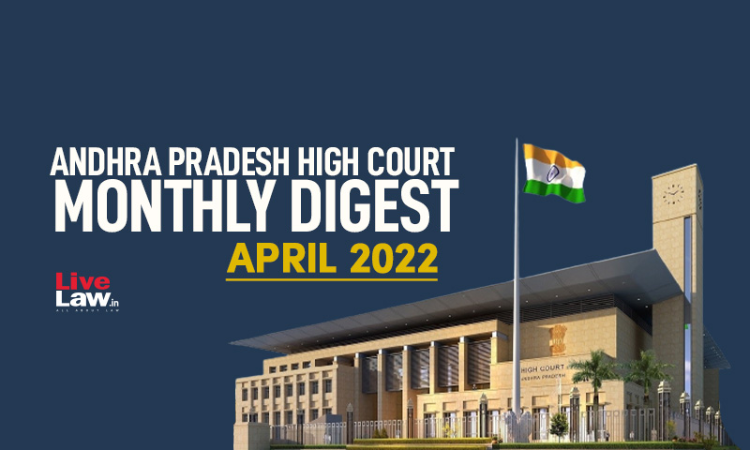Next Story
6 May 2022 5:22 PM IST
Nominal Index N. Gopinath v. The State of Andhra Pradesh, 2022 LiveLaw (AP) 46 Lance Naik Korrapati Kishore Kumar v. The State of Andhra Pradesh, 2022 LiveLaw (AP) 47 Sri Madarnanchi Rama Swamy Dharmasatram Private Trust v. The State of Andhra Pradesh, 2022 LiveLaw (AP) 48 M/s. Sree Constructions, v. The Assistant Commissioner (ST), 2022 LiveLaw (AP) 49 Dommaraju Vinay...

